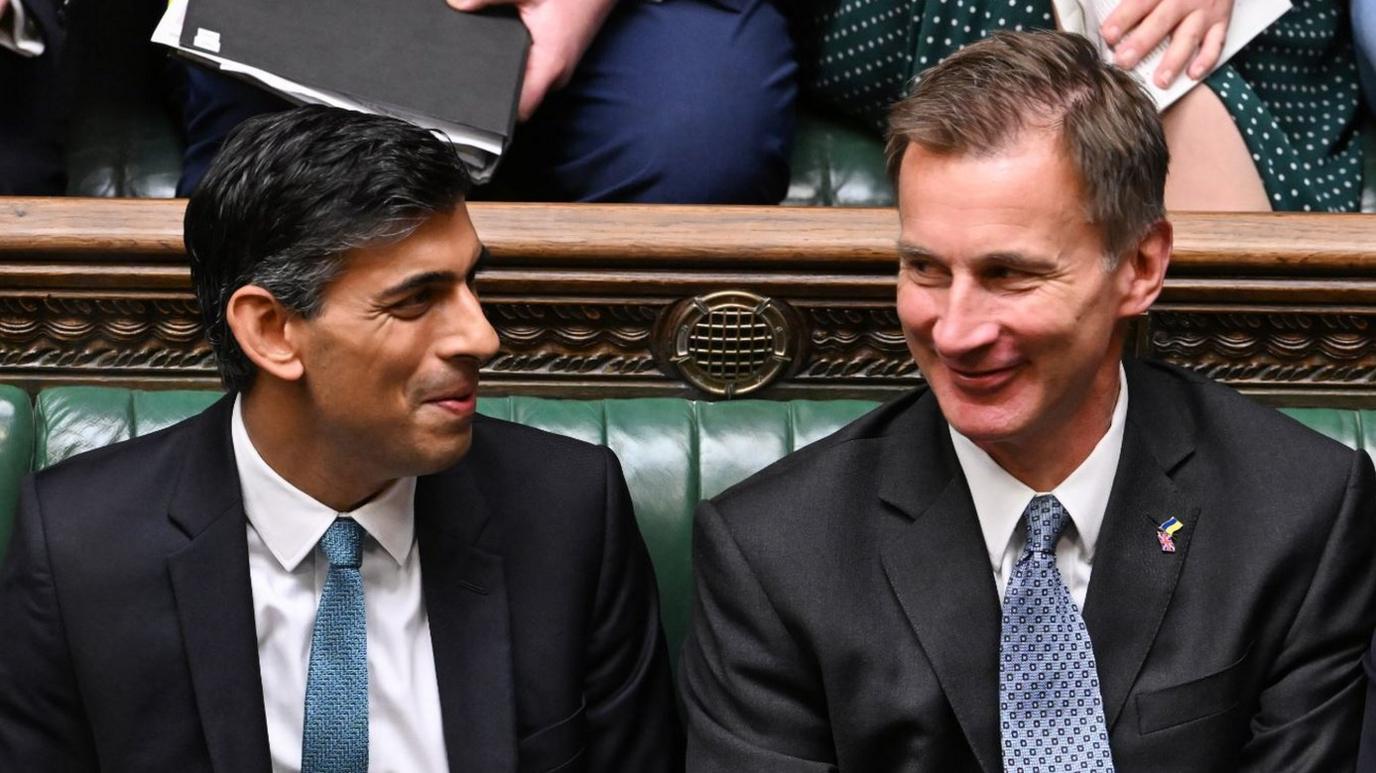Which policies will Rishi Sunak stick with or twist?
- Published
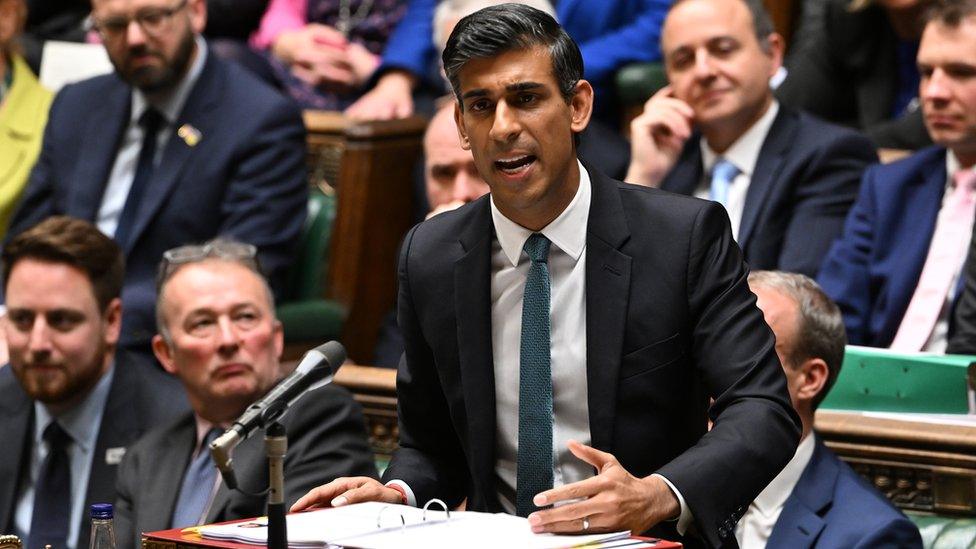
Rishi Sunak's first Prime Minister's Questions and a briefing from No 10 have given us a flavour of what he is planning to do as prime minister - and, crucially, how he'll differ from his predecessor Liz Truss.
A lot of policies, ones involving public spending decisions, will not be confirmed until the now-delayed autumn statement on 17 November.
But here's what we know so far.
1. The fracking ban is back
Liz Truss had lifted the ban on fracking where there was "local consent" - although her plans never got far enough to confirm how they would measure this. She faced a backlash from some Tory MPs, and opposition parties, who did not support fracking and thought MPs should get a say. Mr Sunak, in answer to a question from Green Party MP Caroline Lucas at PMQs, suggested that ban would now be reinstated unless the science changes - which was later confirmed by his official spokesman. That's despite Mr Sunak saying in the summer leadership campaign that he also backed a return of fracking where there was local consent.
2. No commitment yet on pensions triple lock
Liz Truss confirmed that pensions would still rise in line with inflation - as opposed to average wages, which is lower. On Wednesday No 10 did not commit to whether or not they would. But they did say that Mr Sunak would be guided by the Conservative 2019 manifesto, which committed to this, and that he would be "compassionate" to the most vulnerable. We're likely to hear more about that at the chancellor's economic statement on 17 November.
3. Will benefits rise as much as inflation?
Whether or not to raise benefits in line with inflation was an issue that split Ms Truss's cabinet. There was speculation her government may not decide to proceed with that commitment, despite some of her cabinet ministers like Penny Mordaunt saying it was the right thing to do. On Wednesday No 10 did not commit to raising benefits in line with inflation, but said this would be a matter for the chancellor on 17 November. However, answering a question in the Commons, Mr Sunak said he had "always acted in a way to protect the most vulnerable" when he was chancellor - a hint there that he may well be in favour of the rise.
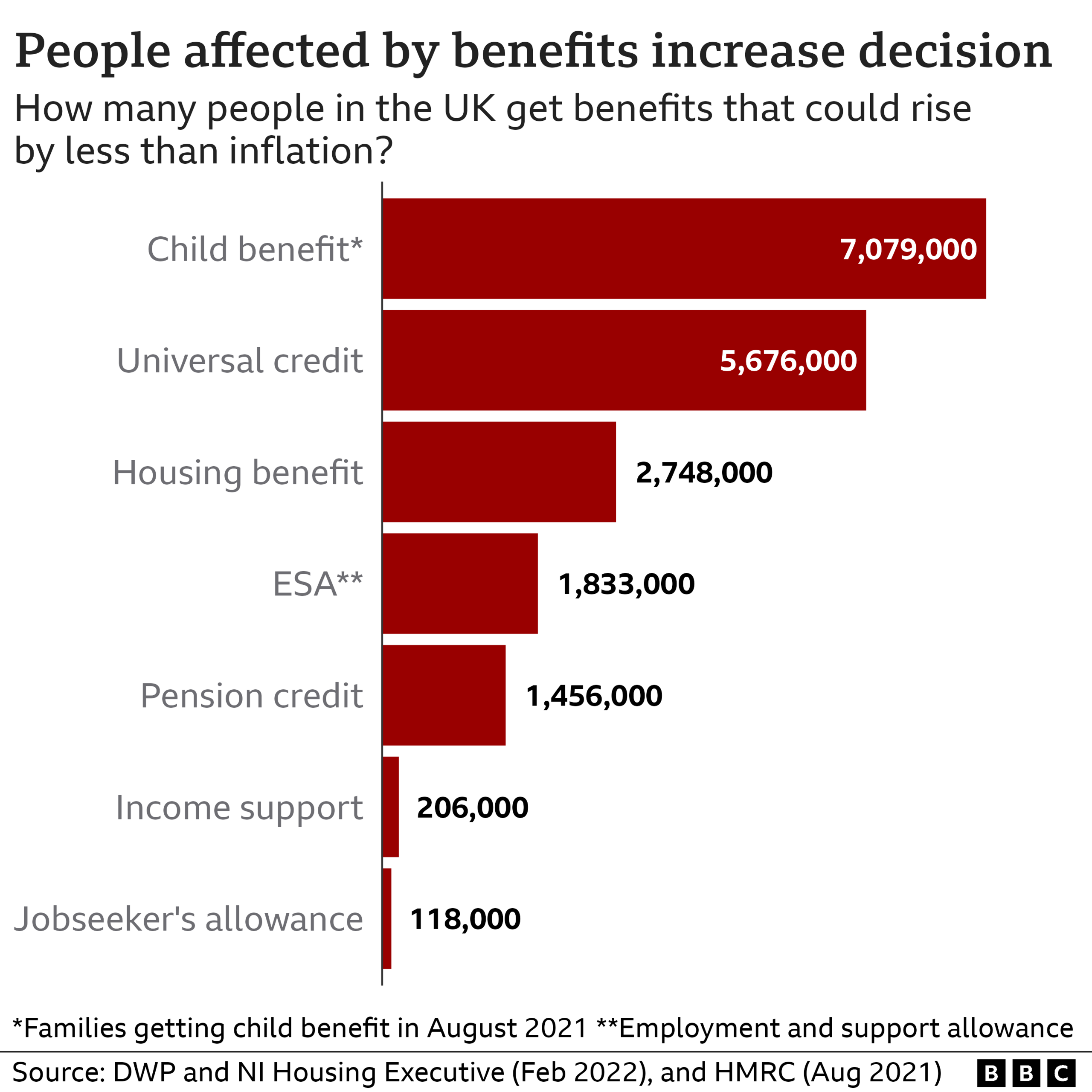
4. Will aid spending rise again?
The government cut its pledge to spend 0.7% of national income on international aid to 0.5%, in response to major government spending during the Covid pandemic. One of the key Conservative MPs who rebelled against this cut, Andrew Mitchell, is now back in government as an international development minister. No 10 have not committed either way on whether the initial pledge will be reinstated, saying that a lot has happened since Mr Sunak indicated he would like it to eventually return. Again, this is one we will need to wait and see on.
5. Tax for businesses
The new chancellor Jeremy Hunt has already ditched Ms Truss's pledge to scrap the planned rise to corporation tax. No 10 say this will be a decision for the fiscal statement on 17 November, but Mr Sunak had always intended when running for Tory leader to keep the planned rise to this tax next year.
6. Onshore wind
No 10 say that Mr Sunak wants "offshore not onshore wind". The former chancellor Kwasi Kwarteng and former prime minister Ms Truss had paved the way to loosen planning rules for onshore wind in England after saying they would bring onshore planning "in line with other infrastructure to allow it to be deployed more easily in England". Currently, planning restrictions mean it is very hard to build new onshore wind farms in England. Opposition parties want the rules loosened, arguing its one of the quickest and cheapest forms of homegrown energy.
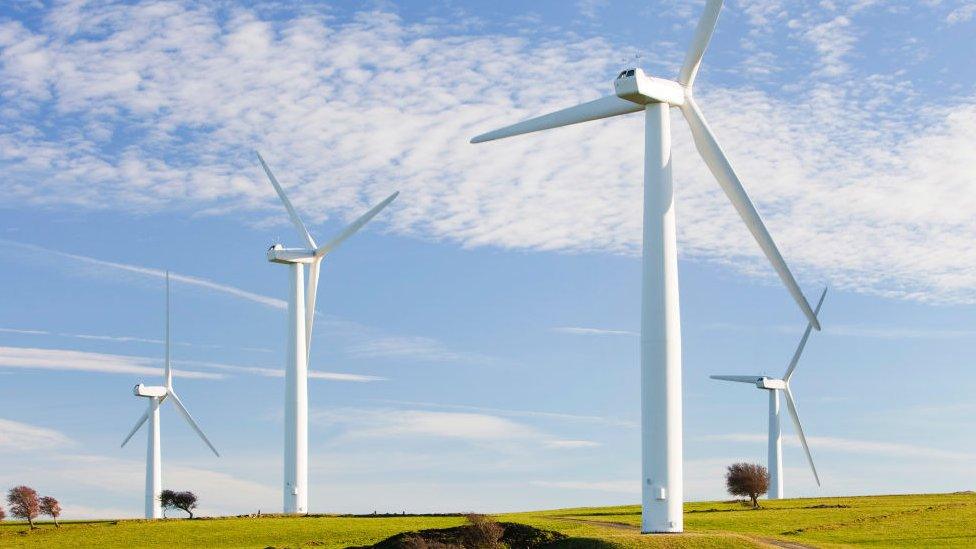
7. Defence spending
No 10 has not committed to raise spending on defence to 3% of GDP by 2030, saying it will be a matter for that economic statement on 17 November. The chancellor has already hinted this pledge may be rowed back on - saying every department including the Ministry of Defence would need to find efficiencies as he makes "difficult" decisions on the economy. Mr Hunt hasn't committed to any timings of when defence spending may rise, a pledge that Defence Secretary Ben Wallace has been keen the government sticks to.
8. Future tax cuts?
One of the big differences between Mr Sunak and Ms Truss in the summer leadership contest was that Mr Sunak said he did not want to cut taxes until inflation had been brought down, saying tax cuts risked fuelling price rises further. In the summer he said he would cut income tax by 1p in April 2024 and a further 3p by end of the next Parliament. On Wednesday No 10 today said that he prioritised cutting taxes, and a path to that by 2024, when he was chancellor but "could not speculate" long term into the future and this was a matter to be discussed with his chancellor.
9. Planning and house building rules
Answering a question by Liz Truss's former chief whip Wendy Morton on Wednesday, Mr Sunak committed to pursuing a "brownfield-first" approach to housebuilding - i.e. building on land that has already been developed in the past, rather than on so-called green belts which are areas between towns and countryside. Liz Truss had reportedly been intending to loosen some planning rules in England to encourage more housebuilding - particularly in what she described as "investment zones" which would be identified around the UK.
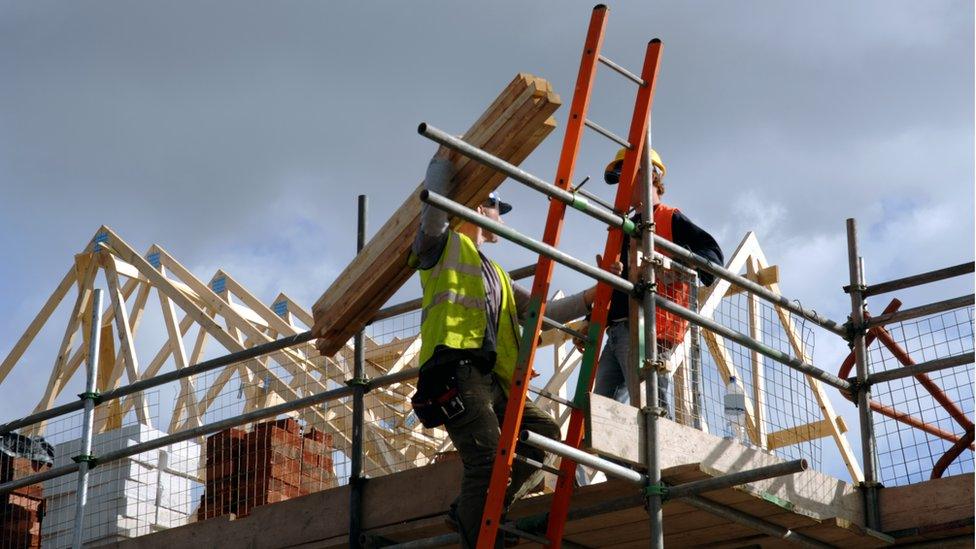
10. Immigration
Mr Sunak's No 10 operation says it "remains important" to meet the 2019 manifesto commitments, which include bringing down net migration numbers. The "exact mix" will be set out in due course and be "guided" by the principle that the UK needs skills and talents but should also train people in the UK, they say. Ms Truss had been reportedly planning to loosen certain immigration rules to help fill vacancies and shortages in certain sectors, although some cabinet ministers in her government were not on board with the idea.
Related topics
- Published26 October 2022
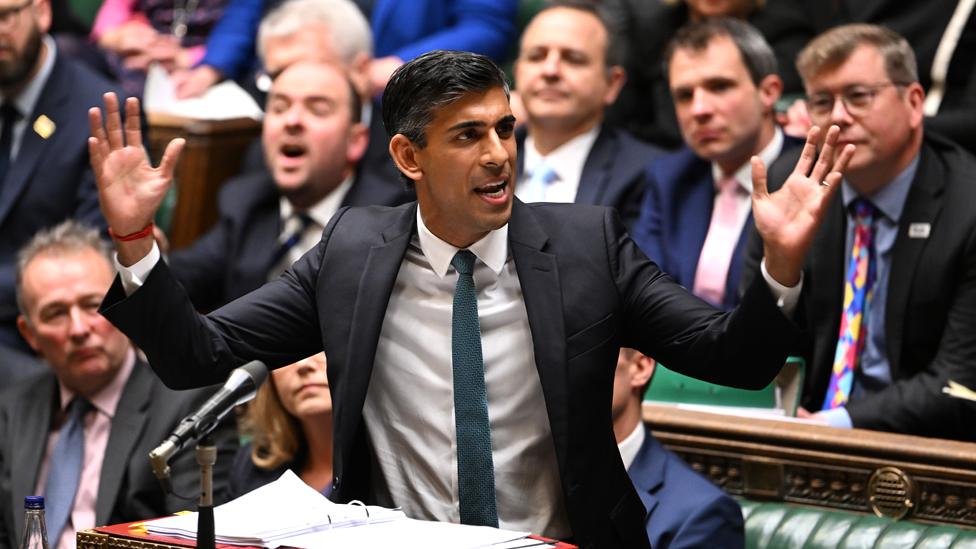
- Published27 October 2022

- Published26 October 2022
